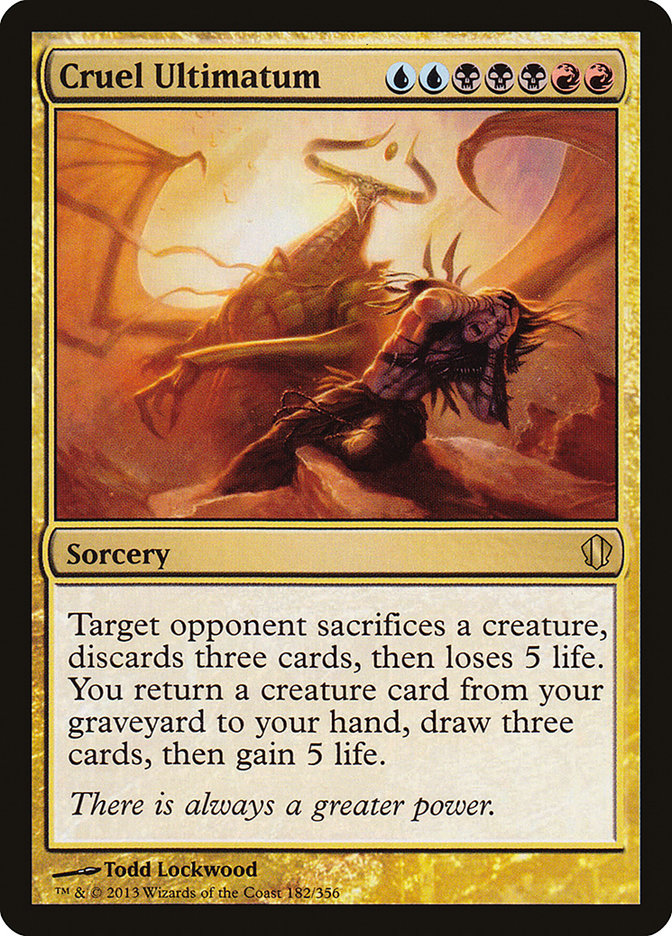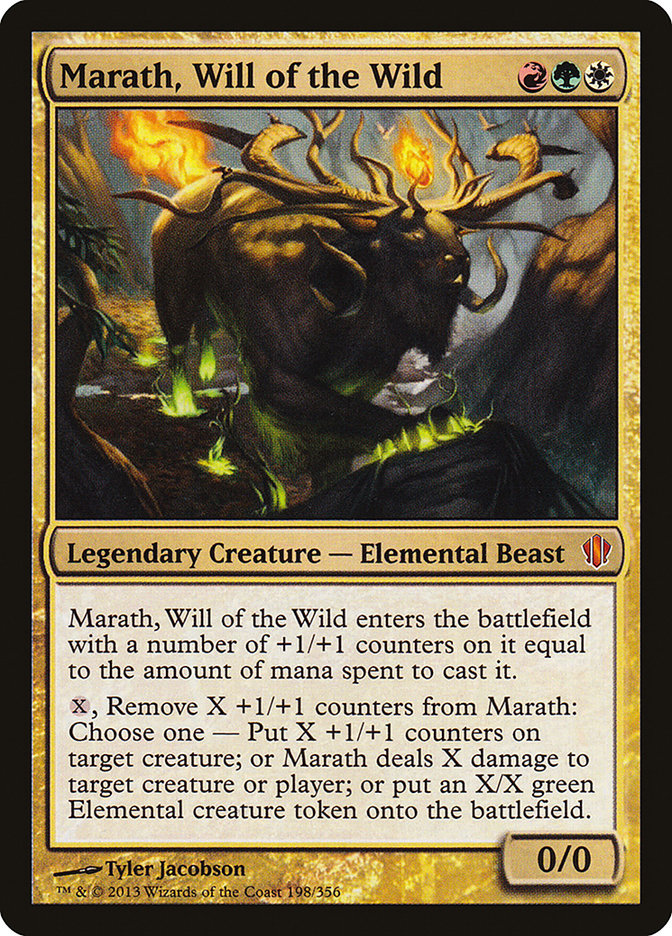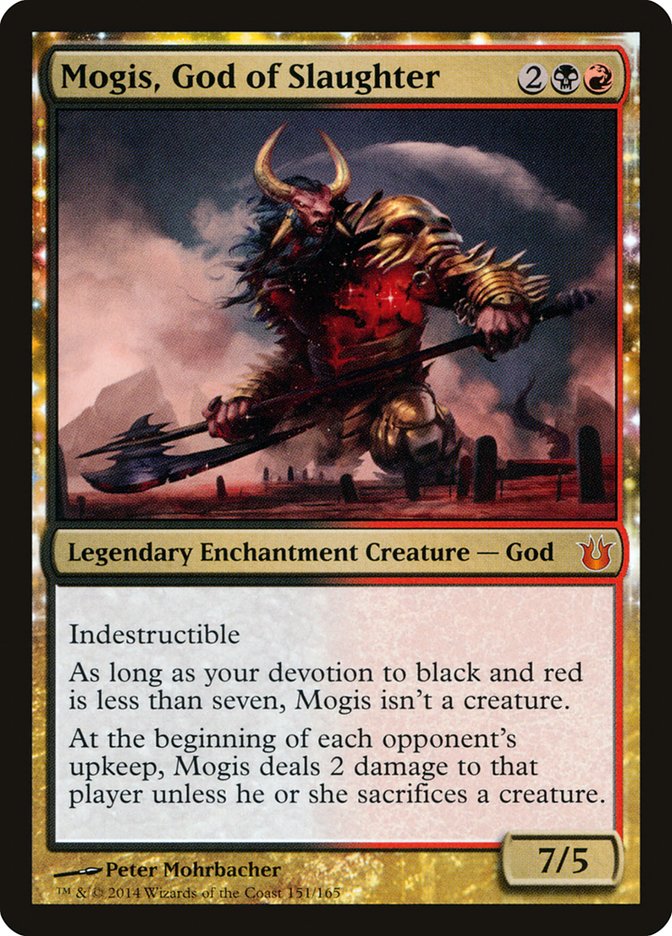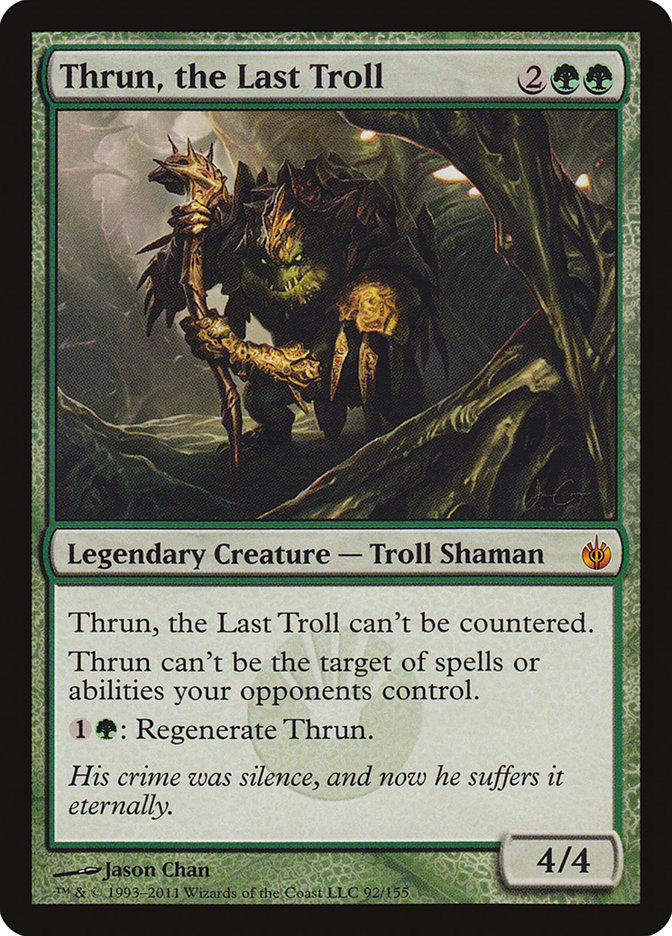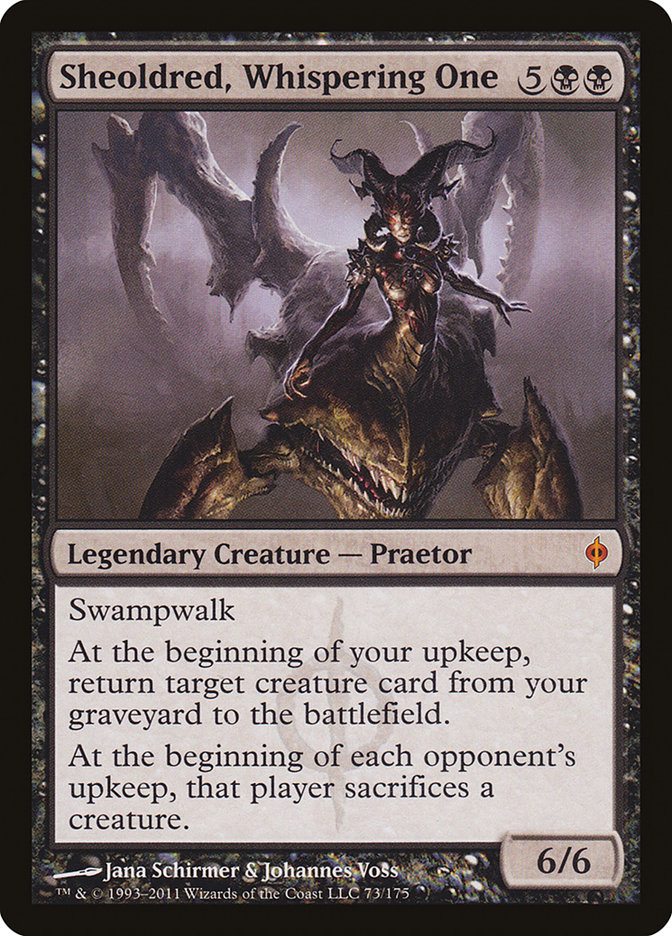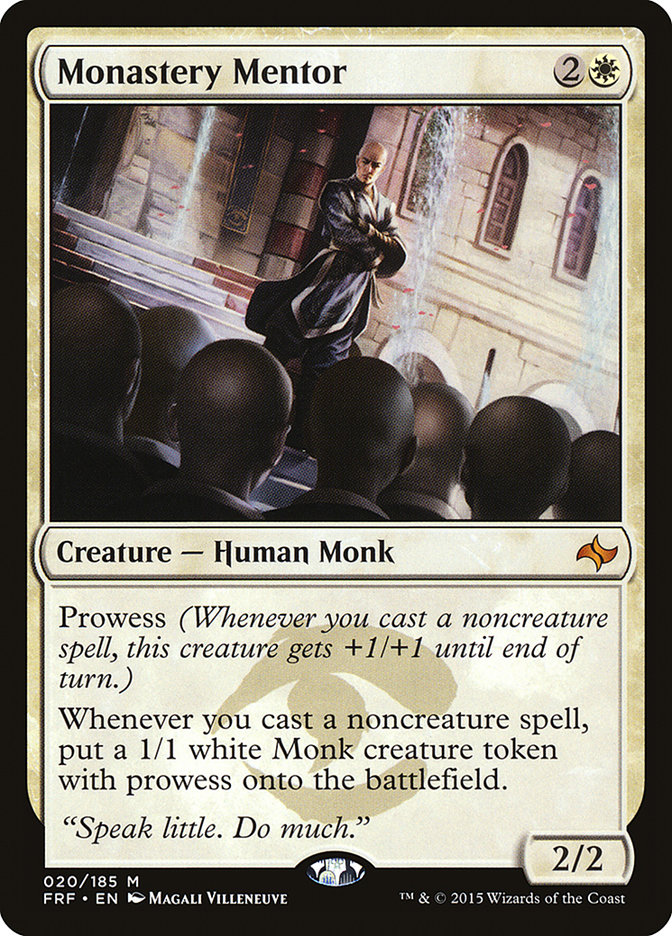You can learn a lot from your opponents.
At my local store, East Coast Gamers, I have a steady group of people that I game with. While we get large groups podding up to play, I most enjoy gaming with my friends and other players who approach Commander with similar goals and I’m always glad to see them at the store.
Simply put, I want to start by taking a moment to thank the awesome people I sling spells with. Thank you for continuing to provide awesome games and great stories.
I also want to discuss the things they teach me! At my LGS, we joke about how I “think I know everything” since I write, but I learn a lot from the regulars. I wanted to highlight some of them and the biggest lessons they teach to me and anyone else who joins us on Sundays for Commander.
The Game Store Crowd
Buro is the youngest in my social circle. Ignore his claims to being a “Mike” because he does not, in fact, have a first name.
Sketch artist’s rendering of Buro.
Buro teaches a lesson in raw power. Untamed and undaunted, if there is a card that makes people cringe at its potential power, then Buro has used it. He plays to win the games, and to do so, he tries to use the strongest tools at his disposal.
His lesson is a good one: you need good cards to do well.
There is always a greater power.
Buro’s decks oftentimes include a few cards simply on their ability to win a game uncontested. While we disagree on this approach, he does well enough in games that I have to admit the strategy has success. I simply prefer to focus my themes more.
Adam is our resident artist and gambler. His lesson is in consistency. Adam may sleeve 100 cards for his Commander deck, but it is actually closer to about fifteen to 30 cards in practice. He has many redundant cards and tutors necessary to find what he needs and keep his game moving.
Marath, Will of the Wild will always try to cheat out or cast Mirari’s Wake or Mana Reflection. His Derevi, Empyrial Tactician deck has many ways to find the five Swords of Value and Stuff, most especially Sword of Feast and Famine to allow him to disrupt the table.
Meanwhile, Mogis, God of Slaughter has extremely redundant ways to keep damage chipping away. Adam loves his tutors and is always getting straight to the meat of his deck by jumping past the appetizers. Buro may have decks that sometimes hit a ten on the power scale; Adam’s decks are always hitting an eight to a nine. You can never count him out.
John is the joker and our troll.
“Hi, I’m John.”
Dragging a game out forever is his favorite thing to do. His lesson is to keep tuning a deck: if your decks stay stagnant, your group can overpower you and start running silver bullets against you.
When John is not trolling a table, he is using a monster of a deck. They don’t start off too bad. But week after week John tweaks and tunes his decks. The mana gets tighter, the creatures more impactful, the spells more efficient. Then suddenly he is outpacing the table with a horde of enters-the-battlefield effects. Karador, Ghost Chieftain and Roon of the Hidden Realm are his most notorious decks. They are unrelenting because John keeps improving them.
Snow (one of our many Mikes) is a goofball and scary deckbuilder. Snow’s decks range from hyper-efficient combo machines to Durdletron 3000.
Snow’s biggest advantage is that he is always a week ahead of the rest of the store. Snow attacks the entire store with his decks. When we were all drifting into Voltron builds and decks with just a few beefy creatures, Snow made Sheoldred, Whispering One and forced us to change. When everyone starting ramping hard to get to the higher end of the curve, Snow made Chandra, Fire of Kaladesh and would flip her before we could fight a planeswalker effectively. When we lacked early aggression and interaction, Snow made Karametra, God of Harvests and would combo out before we could stop him.
Snow is always reading out trends and building to beat the whole store. Some of us aim to beat individuals; Snow aims to beat the store and force adaptation. His lesson is to read the metagame and find ways to beat everyone’s overall strategy, not a single player’s key cards.
Mike Taylor (said like it is one word) is one of the store workers. He doesn’t always get to play Commander, but when he does, he is piloting a Orzhov monstrosity against the table. At this point, I think Mike has built every W/B commander possible. He now is at a point where he rebuilds his deck in a new strategy and with a new commander every couple of weeks.
Mike Taylor has refined the Orzhov plan to make any strategy viable. He’s done control, aggro, tokens, Voltron, pillowfort, combo, and more. Now he just tries to make something work.
Our advantage is that we know he is on W/B each week. His advantage is that he changes so often that we don’t actually know what he is doing.
Mike Taylor has mastered a specific piece of Commander. His lesson is to slow down the changing from deck to deck and strategy to strategy. Instead, focus on making one thing as perfect as you can before moving on.
Liz is our newest regular. She cannot make every Sunday, so she makes her games count. Liz is a social butterfly by nature. Her best games are ones where lots of stuff happens during the game but great conversations happen along with the gameplay. Going into the tank for a bit is fine, but games are less enjoyable for her when everyone is too focused on playing and ignoring the other players.
Her lesson is to have fun with the people around you. A great conversation can be better than a great game. The conversation may lead to meeting up outside a game store and making a real friendship. The game has a smaller chance of doing that.
Pete is our Spikiest member. I may hate politics in Commander and play to win, but Pete plays hardcore all the time.
Pete’s lesson is aggression. He uses threat assessment to find the person he thinks will beat him. He then relentlessly attacks that person to give himself the best chance of victory. This person is usually me or another a veteran player. But when a new player is throwing down something Pete cannot reliably handle, he recognizes his deck’s flaws and does everything in his power to eliminate that player. Pete applies pressure to his opponents like few others. Be aggressive against your threat and pressure them.
Non-LGS Meetings
Sometimes you meet people online. Or at a convention. Or you meet at a convention and realize that you’ve talked to this person on Twitter about a bunch of Commander topics. These are people I’ve met and learned from who don’t frequent my local store. The conversations are mostly online, but the lessons are no less valid.
I’m here today because of General Damage Control. Cass and Dave took a shot with me and I got to write. Throughout my tenure, I met almost the whole crew and I still chat regularly with them. Upholding the social contract is the biggest lesson I learned with the GDC Crew. The site has lots of advice in nearly all aspects of Commander. But everything goes back to the social contract and having an awesome time with your friends. The game is about more than winning; GDC crystallized this for me.
Andrew Magrini writes an awesome blog about food, fun, music, and Magic. I met Andrew in real life at Gen Con 2015. I learned an immediate lesson during games with him: the lesson of bucking tradition. His Karador, Ghost Chieftain heralds an Enchantress-style deck, not one all about the graveyard. His Damia, Sage of Stone is a Lands deck, not at all like my Sultai control build. Andrew’s decks are fun and powerful but tread different ground from expectations. This not only makes the games enjoyable but can throw opponents off.
Bruce Richard writes for the Mothership and TCGPlayer; before that he was at GatheringMagic and Muse Vessel. But the lesson Bruce taught me is to keep teaching Magic. Bruce organizes tournaments at his local library for younger players to get them involved in the game. With his tournaments and his articles, Bruce aims to teach. We can always use more people growing Magic and helping some newbies transition into Commander. Bruce teaches by sharing his difficulties, not by highlighting another’s. He can show different lessons without making anyone reading his articles feel down.
Kyle Carson is most recognizable for his beard and cowboy hat at conventions and other large gatherings of Magic players. Kyle has perfected a lesson that I have repeated several times here: game expectations. Not only did Kyle ask every single time at Gen Con 2016, but he went further to make sure that everyone really was on the same page. Kyle worked to make sure everyone was ready to have a good time. When someone’s expectations were not what he was looking for, Kyle helped them find a pod that did meet their expectations. Kyle was even better than I was about asking for game expectations. Good guy points to him, and he’s a great role model for using an honest discussion to have the best games possible.
Roberto Moser is an active Twitter user for #CMDR. For the longest time he had a single deck built around Grimgrin, Corpse-Born. He tuned that deck over and over to craft exactly what he wanted. As per his frequent comments, Grimgrin is a cutie and just needs a hug. Roberto gave him that hug and made a great deck. What is more impressive is Roberto’s resistance to building new decks. For years he had just a single deck until he made Grimgrin into the finest Commander weapon he would. Then he set off to make another deck.
Roberto’s lesson is in self-discipline. Many players jump into Commander with one deck, but within a month they have several. These decks are usually rough-edged and fragile. Against prepared opponents, they shatter. Roberto’s focus on a honing a single deck is a good one for players just jumping into multiplayer games. Restrain yourself and focus on making something great before moving on.
Lessons Learned
Even outside my game store, there are fantastic people to meet. People to learn more from. Enjoy your time and discussions with your friends, but never stop learning from them.
What lessons do you learn from your group? What is the best thing they teach you?



